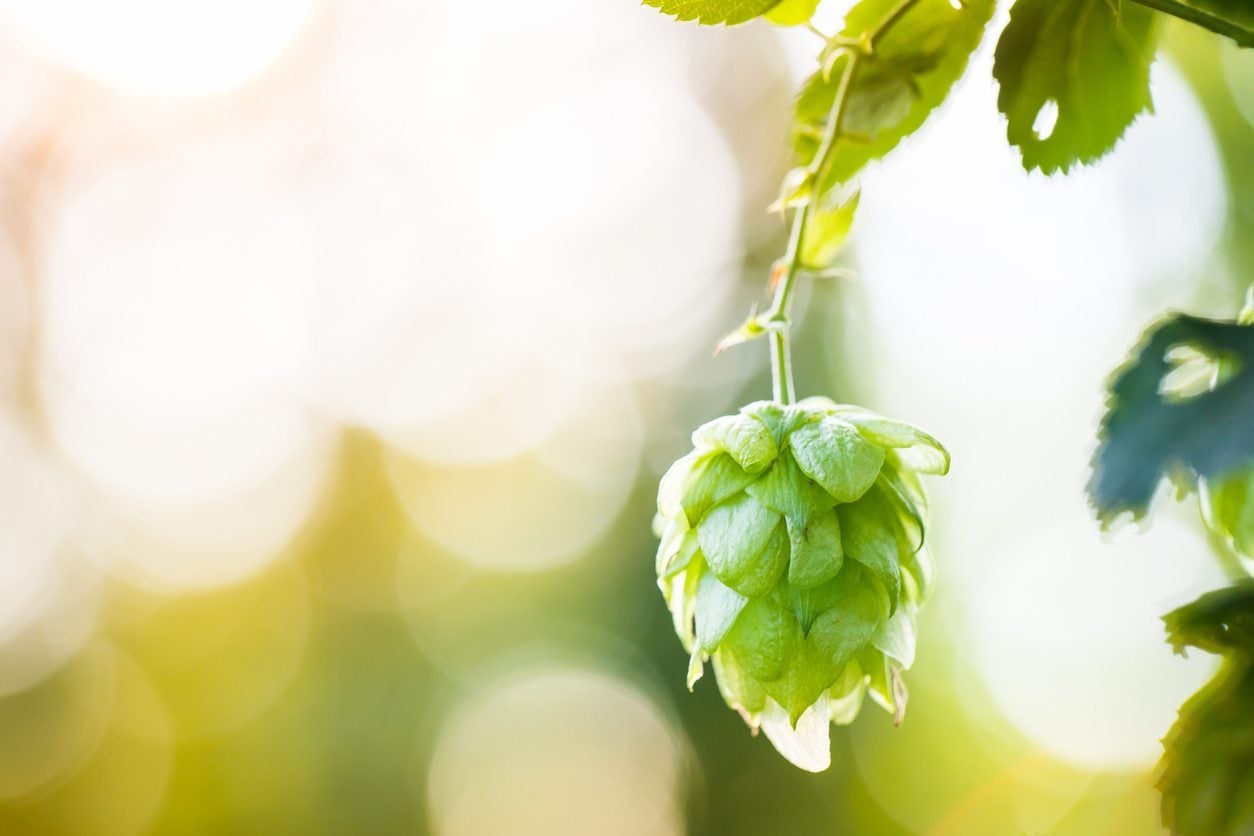Zone 9 Hops: Tips On Growing Hops In Zone 9


Hops are glorious, fast growing perennial vines that are primarily used to flavor beer. Most production is done in moist, temperate regions which makes it challenging to find hops plants for zone 9. Hops usually need full sun in order to produce the cones or flowers, which are the harvested item on these huge vines. However, growing hops in zone 9 may require situating them in a partial sun location. Selection of species can also help zone 9 growers find success with hops plants.
About Hot Weather Hops
It is the female plant which produces the valuable cones for beer making. In commercial production, vines (called bines) are strung upward to catch more sun and to support the plant. Hot weather hops grow similarly but production of cones can be sacrificed if the plant is heat stressed or doesn't receive enough moisture. For this reason, choosing the right zone 9 hops is key to successful harvest. The wild plant is native to areas with plenty of moisture and moderate temperatures and can grow 25 feet (8 m.) in one season but then dies back to the crown in winter. In warm regions, the plant doesn't get that resting period and cone formation may be reduced. There are several strains that have been developed that have more heat and sun tolerance though.
Hops Plants for Zone 9
Southern growers seem to swear by cultivars with a "C" in the name. The best seems to be Cascades. Chinook and Centennial also seem to perform well in hot, sunny climates. Nugget is a good selection as well. Willamette and Amarillo are rated as marginal. Zone 9 hops may have a sluggish start and some cone formation sacrificed with a lower harvest and smaller cones. That means you should plant several rhizomes to have sufficient harvest for your beer making. Overall, Cascade seems to have the highest production value, but your selection will depend on if you want bittering hops or a milder flavor. Cascade also has the most pest problems, go figure.
How to Grow Hops in Zone 9
Hops rhizomes should be planted in well-drained soil with a pH of 6.0 to 8.0. An area with east or west light is best for growing hops in zone 9. Amend the soil deeply with quick release nitrogen, rich manure, and some slow-release bone meal. Once you have sourced your rhizomes and planted them, keep young plants evenly moist. The plants will need to be kept moist but not soggy. Deep watering is best for zone 9 hops. Fertilize the plants with a balanced food once per month. Begin training them immediately, as the bines will form and grow rapidly. You can grow them against a fence, along a trellis, or set up a simple twine system. Hops must grow vertically and need to be supported to get light and air into the flowers. The cones are the real star. Hops should be harvested at the end of the growing season. You can tell when they are ready by squeezing to see if the cone has dried out a bit. Cut down vines and allow them to dry naturally before pulling off the cones. Dry them the rest of the way on screens or in a food dehydrator. Store in an airtight container in the freezer or refrigerator until ready to use.
Sign up for the Gardening Know How newsletter today and receive a free copy of our e-book "How to Grow Delicious Tomatoes".

Bonnie Grant is a professional landscaper with a Certification in Urban Gardening. She has been gardening and writing for 15 years. A former professional chef, she has a passion for edible landscaping.